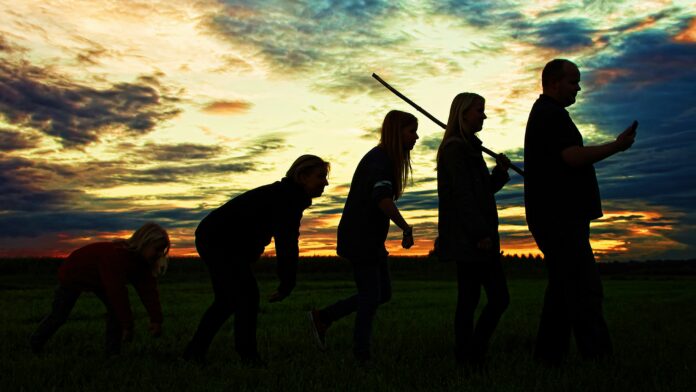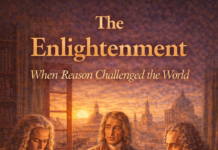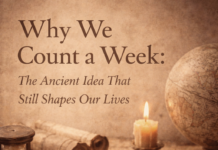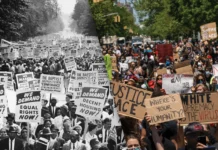From the moment we are born to our final breath, life is a journey filled with challenges, growth, joy, and sorrow. The concept of the “circle of life” is a timeless one—highlighting the natural cycles of birth, life, death, and renewal that all living beings experience. But while this cycle has remained a constant thread throughout human history, the way we experience it has evolved over time and continues to change as we look toward the future.
In this article, we’ll explore the circle of life as it was for humans in the past, how it unfolds today, and how it might change in the future.
The Circle of Life in the Past
For most of human history, life was defined by a close connection to nature and a deep awareness of the cycles that governed existence. The lives of our ancestors were shaped by the rhythms of the seasons, the availability of resources, and the unpredictability of the natural world.
1. Birth and Childhood in Ancient Times
- In the past, childbirth was a perilous event. Without the benefits of modern medicine, many women and infants did not survive. Child mortality rates were high, and families often lost children to illness or malnutrition.
- Those who survived infancy grew up in close-knit communities where children learned skills and traditions essential for survival from a young age. Play was intertwined with learning, and children often contributed to household tasks or agricultural work.
2. Adulthood and the Responsibilities of Life
- As people entered adulthood, their lives revolved around providing for their families and ensuring the survival of their community. Men typically hunted, farmed, or defended their territories, while women gathered food, raised children, and managed household affairs.
- Life expectancy was much shorter than it is today, with many people succumbing to injuries, infections, or harsh living conditions. Reaching old age was considered a sign of wisdom and resilience, with elders revered as keepers of knowledge.
3. Death and the Afterlife
- In ancient societies, death was seen as a natural transition rather than something to be feared. Many cultures had rich spiritual beliefs that emphasized an afterlife or reincarnation, suggesting that death was merely another step in the eternal circle of existence.
- Rituals, ceremonies, and burial practices varied, but they often centered around honoring the dead, celebrating their life, and ensuring a smooth journey into the next world.
The Circle of Life Today
In the modern world, advances in science, technology, and medicine have transformed every stage of the human life cycle. Our lives have become longer, more comfortable, and increasingly complex. However, this progress has also introduced new challenges and questions about what it means to live a fulfilling life.
1. Birth and Childhood in the Modern Era
- Thanks to modern healthcare, childbirth has become much safer, with far fewer maternal and infant deaths. Advances in prenatal care, vaccinations, and medical technology have ensured that more children survive and thrive.
- Childhood today is often characterized by formal education, structured activities, and less freedom to explore the natural world independently. Digital technology, while providing endless information, has also impacted children’s social interactions and physical activity levels.
2. Adulthood in a Fast-Paced World
- Adulthood today is marked by career aspirations, financial pressures, and the pursuit of personal fulfillment. Unlike the past, where survival was a priority, people now focus on finding purpose, achieving work-life balance, and navigating the complexities of modern relationships.
- The digital age has transformed how we connect with others, work, and relax. However, it has also led to challenges like burnout, mental health issues, and a sense of disconnection despite being constantly “plugged in.”
3. Aging and the Golden Years
- Thanks to advancements in medicine and a focus on wellness, people are living longer than ever before. The average life expectancy has increased dramatically, leading to a growing population of elderly individuals who are healthier and more active than in previous generations.
- However, the aging process comes with its own set of challenges, such as loneliness, age-related illnesses, and the societal pressure to remain youthful. The question of how to care for an aging population is becoming increasingly important.
4. Death and How We Cope
- Death in modern times is often seen as a medical event, managed in hospitals or healthcare facilities. Many people die alone, away from their families, which is a stark contrast to the past, where death was a communal experience.
- In recent years, there has been a growing interest in alternative approaches to death, such as green burials, death doulas, and conversations about how to live well until the end. This shift represents a desire to reclaim the natural cycle of life and death.
The Circle of Life in the Future
As we look toward the future, it’s clear that technology and changing social dynamics will continue to reshape the circle of life. But while these changes may offer exciting possibilities, they also raise profound ethical questions about the nature of humanity.
1. Birth and Genetic Engineering
- In the future, advances in genetics and biotechnology could transform childbirth. Technologies like CRISPR gene editing may allow parents to eliminate genetic disorders, select traits, or even enhance physical and intellectual abilities.
- These capabilities could reduce suffering, but they also raise ethical concerns about “designer babies” and the potential for social inequality based on genetic enhancements.
2. Adulthood in a Hyper-Connected World
- The rise of artificial intelligence, automation, and remote work will continue to change how we live and work. The traditional notion of a “career” may become obsolete, replaced by multiple streams of income, gig work, or even universal basic income.
- Virtual reality and augmented reality may alter our social interactions, creating new forms of connection but also blurring the lines between the virtual and real worlds.
3. Aging and Longevity
- Emerging technologies like stem cell therapy, regenerative medicine, and anti-aging research may significantly extend human life spans, possibly allowing people to live well beyond 100 years.
- However, the question remains: if we live longer, will those extra years be fulfilling and healthy? And how will societies adapt to the challenges of supporting an aging population?
4. The Future of Death
- The concept of death may change drastically in the future. Scientists are already exploring ways to upload consciousness into digital forms, which could allow for a kind of digital immortality.
- Alternatively, advancements in cryonics and the preservation of the human brain might give people the option to be revived in the future when medical technology is more advanced.
- Embracing the Circle of Life
Throughout history, the circle of life has remained a central theme of human existence, reminding us of the natural ebb and flow of birth, growth, decline, and death. As we navigate the complexities of the modern world and explore the possibilities of the future, it’s essential to remember that while technology can enhance and extend life, it cannot replace the meaning and connections that make life truly fulfilling.
The challenge of the future will be to embrace the benefits of progress while staying rooted in the timeless truths that have guided humanity through the ages. Ultimately, the circle of life will continue—no matter how much the details may change.
Let us honor the past, live fully in the present, and approach the future with a sense of wonder and responsibility.

Photo by Johannes Plenio on Unsplash
Views: 6






